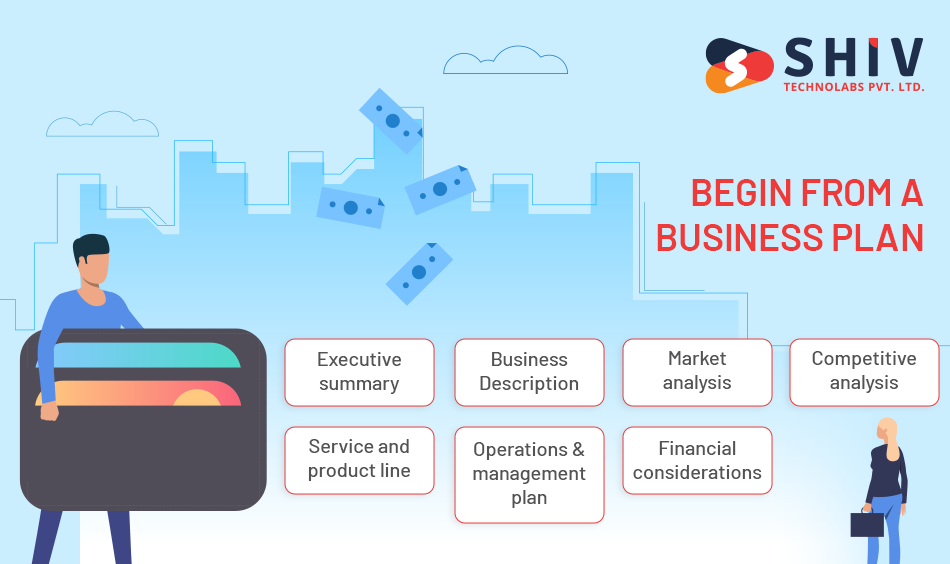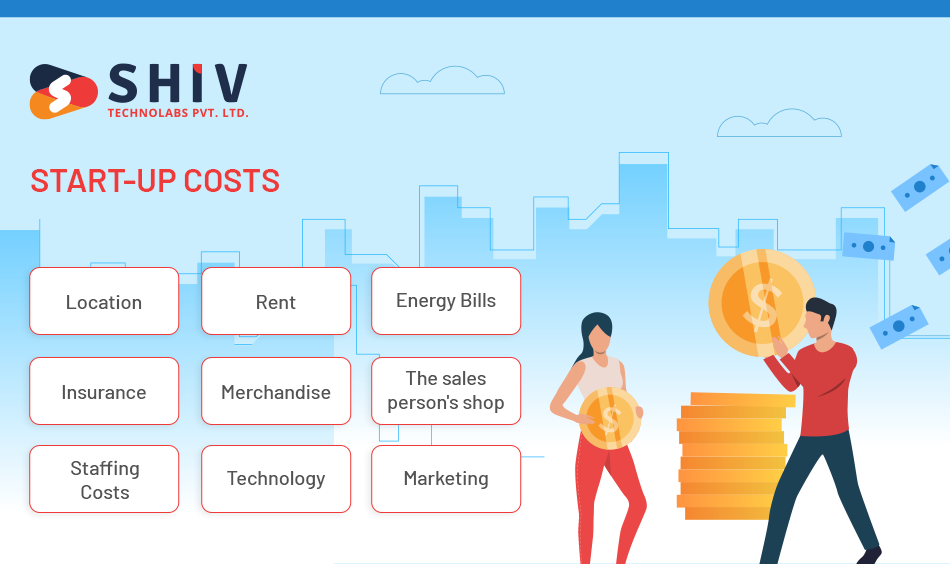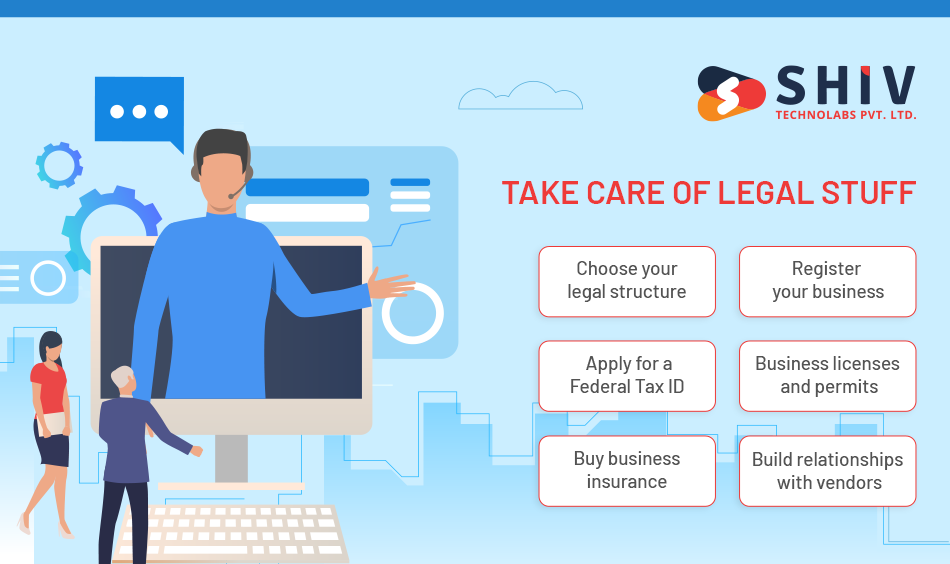Considering Starting a Retail Business?
You are not alone. Yet local businesses receive less publicity than national brands, constituting a large percentage of all American retail establishments.
It was discovered that small retailers (those with less than 50 employees) comprised 98.6% of all the country’s retail firms in 2019. Therefore, to break into this vibrant market and establish your store, you must know how to start a retail business.
How To Start A Retail Business
Consequently, we will take you through starting a retail business and offer additional assistance tools during this start-up phase.
1) Begin from a business plan

A lot of business planning is involved when you want to start a retail business. This is where you talk about what you want and what you think will happen, but also any limitations that may be encountered. Think of it as a road map for the next three to five years, setting out measurable milestones at each stage of growth.
To create an efficient business plan for your retailing business, you should include some key elements: an executive summary, a description of the company, a market and competitive analysis, an overview of the product/service line, management and operations planning and financial considerations. These provide enough information concerning your firm including its strategic objective as well as financial viability in terms of capital availability. A good business plan is one that sets a strong foundation for growth and sustainability for your store.
2) Give your retail store a name of your choice
Choose a name for your store. Apart from that, it would help if you came up with the best name for your business. When selecting an ideal business name, three main things to consider are what it means, how easy it is, and if it looks like other businesses. That is, the term must make sense to its clients, be short in length and pronunciation, and not look like your competitors’.
Apple, Google, Facebook, and Nike have names that are easy to pronounce and distinct. Your company’s brand should contain the essence of your business and stick in customers’ memory. A catchy title can help leave a lasting impression on the customers, even though this is not a major concern.
3) Start-up costs

To start a retail business, one must clearly understand the startup costs involved for it to be established on a strong footing. Start by evaluating nine key expenditures. It’s all about virtual or physical location since this determines the flow of people and how much it will cost to set up an outlet.
Consider rent, which relies on your location and the number of feet you occupy. Energy bills and insurance are recurrent expenses vital for running and safeguarding the business. Merchandise costs include initial investments as well as maintaining an inventory in place. Outfit your store with the necessary technology, like an efficient point-of-sale system and security features.
Furthermore, when it comes to personnel, there should be a budget to facilitate the daily management of activities. Think about training, wages, salaries, and software for managing workers.
Brand development must recognize marketing costs such as logo creation, business cards, or website design. Create a detailed marketing plan that is consistent with your growth plan. You need to know and cater to these things before you start out, and they will help pave the way for successful retail operations.
4) Take care of legal stuff

You must be aware of how to start a retail business legally; choosing the correct legal entity such as company or LLC based on liability and tax considerations is essential. Therefore, you have to register your business with the secretary of state in your area and obtain a Federal Tax ID (EIN), which will be used for taxation purposes and financial transactions.
Also Read:- How To Start A Drop-shipping Business
Depending on where you plan to locate it, get the licenses and permits needed for your kind of retail business in line with local laws. Have sufficient coverage for personal injury, property destruction, interruption policy, employee health insurance, workman’s comp among others. Adhering to these legal requirements can help create a strong foundation for growth and continued operation in this type of retail business.
5) Build relationships with vendors
Cooperate with trusted sellers to provide customers with the best quality goods and services. Research potential suppliers before you need them, as it will help you find a good match for your company. You may have to pay more for suppliers with proven records of reliable, high-quality service.
6) Hire and train employees/vendors

Good employees are instrumental to any successful retail business. However, employing people for your establishment (and keeping them) might be a lengthy and resource-consuming process.
Before hiring, determine how much staff is needed and if they should be classified as 1099 or W-2 employees (or both). Contact your state labor office to learn about employer requirements, such as insurance, unemployment compensation, workers’ comp, etc. that must be met.
Having determined all legal obligations at this stage, one can now create job offers that will be posted across various platforms, including online ones.
To attract (and keep) the best talent, consider some of these fringe benefits:
- Annual leave
- Retirement savings plan (401k) with matching contributions
- Coverage for life and disability
- Employees’ stock ownership plan
- Staff training fees’ refund or student loans’ settlement support
- Childcare arrangements or concessions
- Discounted health club membership provisions.
In the end, ensure you have a training manual and an employee handbook that will be helpful in the orientation process.
7) Explore Marketing Strategies

Before the grand opening, a marketing budget and strategy can create hype. For example, you can spread the word about your new retail business via flyers and brochures, online advertising, social media, search engine optimization (SEO), and email marketing.
In your advertising strategy, social media for business is a must — about 26% of small businesses used between 10% and 30% of their advertising budget on social media in 2021. Make sure you are posting content that authentically speaks to your audience. One way to do this is by beginning a blog where we can give insightful gardening tips every week because our brick-and-mortar store sells gardening supplies. Additionally, regular giveaways or discounted coupons could be offered so they get more followers.
Also Read:- The Importance Of Brand Marketing For Your Business
Another way of promoting your retail business is through your website. It should be easily navigable and have all important information like the products it offers, working hours and how to reach it on its home page. Consider taking a working capital loan if your marketing budget cannot cover this cost.
8) Organize a grand opening

To gain the community’s support and start selling right away:
- Launch a grand opening.
- Get in touch with local media outlets and let them know about it.
- For instance, give away free goodie bags, stickers or balloons, and other prizes like snacks.
When is the perfect day for the grand opening? You will want to make the most noise by selecting that date that commands attention from everyone. Weekends are generally suitable, especially where children are allowed to attend.
Bottom line
Launching a retail business is not easy. With the specific process provided here, you can easily and quickly lay a firm groundwork for your start-up. For starters, identify your niche market, know who they are, and develop an original selling point. After that, concentrate on finding good products and services within your budget range, establishing your trading space, and enjoying customers’ memories that will last in their minds.
Embrace technological advancement to simplify business processes and broaden its reach. Always remain flexible to adapt to any situation and learn from every experience encountered. Your determination and hard work can make this dream come true if you have the courage. Now go forth and prosper well.

Revolutionize Your Digital Presence with Our Mobile & Web Development Service. Trusted Expertise, Innovation, and Success Guaranteed.















